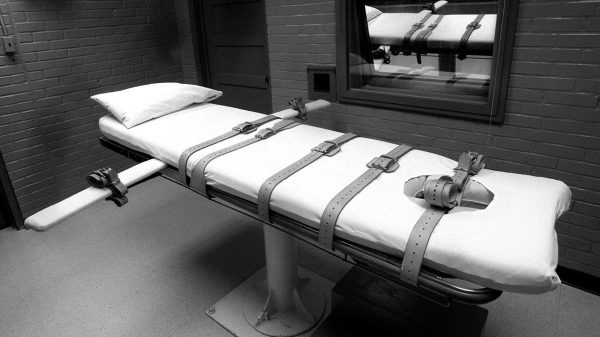By Brandon Moseley
Alabama Political Reporter
According to some estimates the growing the growing prescription opioid epidemic has a national economic burden of $78.5 billion. It is estimated that Alabama alone is spending over $234 million a year most of that on extra healthcare costs.
Drug overdose deaths have soared 167 percent nationally. In California alone the healthcare costs for opioid use has reached over $4 billion a year. The California Department of Public Health (CDPH) found that in 2013 alone, 11,683 people, or 32 people a day, were treated in California emergency rooms for non-fatal overdoses and other opioid-related conditions.
According to the CDC, 91 Americans die each day from opioid overdoses. An estimated 2.1 million Americans suffer from opioid use disorders.
California Assemblyman Kevin McCarty (D) has sponsored a bill to impose a 1-cent per milligram tax on prescription opioids for wholesalers, projected to raise “tens of millions of dollars” to fund drug treatment, prevention and rehabilitation programs.
Assemblyman McCarty said in a statement, “California’s opioid epidemic has cost state taxpayers millions and the lives of too many of our sons and daughters. We must do more to help these individuals find hope and sobriety. This plan will provide counties with critical resources needed to curb the deadly cycle of opioid and heroin addiction in California.”
The Alabama Political Reporter asked State Senator Cam Ward (R-Alabaster) if this idea might make sense for Alabama. Sen. Ward said, “I guess my issue is if you are looking for ways to get more money this is obviously a tax increase that could get support but it won’t do anything to help the addict who needs to stay clean. It is an innovative approach though.”
State Representative Christopher John England (D-Tuscaloosa) said, “That’s an interesting concept. I’m not sure that I would support it though.”
Sen. Ward added however, “I just don’t see a big appetite for a tax increase in Alabama for anything these days.”
Alabama is in the midst of a prison crisis due to overcapacity. Part of that problem is the drug epidemic. Drug addicted people commit more crimes, typically, to support their drug habit. If you don’t deal with the substance abuse problem that offender is much more likely to commit more crimes when they are released from prison. Alabama is also facing a healthcare crisis as costs, including for the Alabama Medicaid agency, are rising. Part of that cost crisis is due to opioid abuse when people get drug prescriptions they don’t actually need and part of that is treating drug abuse related emergencies.
According to a national study of how people who abuse opioids get their pills, the number one way that they obtain is for free from a friend or relative. That is 55 percent of the abused opioids. The friend either has a real condition they get the medication for but then toughs it out or they lie to their doctor about the pain that they are having in order to obtain medicine they don’t need in order to supply their friend or family members drug habit. 17.3 percent are actually prescribed by a doctor to the person abusing the drugs. Another 11.4 percent actually buy their drugs from their friend of relative. 4.8 percent are stolen from their friends or relative. Authorities recommend that drugs not be kept in unlocked bathrooms or medicine cabinets. Authorities also recommend that you don’t give or sell your unused prescription drugs to your friends and family members. Only 4.4 percent of the abused opioids are actually bought from a drug dealer or stranger.
The typical opioid abuser starts with a legitimate prescription for a legitimate healthcare condition. Then they begin to abuse the pills and go to pill mills and pain management clinics to obtain more of the drugs. When they exhaust that option, they look for a friend or spouse to provide them with the pain pills that no doctor will prescribe. As they descend further into dependency they steal the pills or purchase pills. Eventually they descend into the world of the drug dealers; where more illicit options like heroin are offered as a quick fix. According to the Centers for Disease Control and Prevention, 3 out of 4 heroin users began their addiction by abusing prescription drugs. The National Institute on Drug Abuse estimates that up to 25 percent of people who use prescription pain pills over the long term become addicted to these medications. Heroin abuse and heroin deaths are sky rocketing as a result.




















































